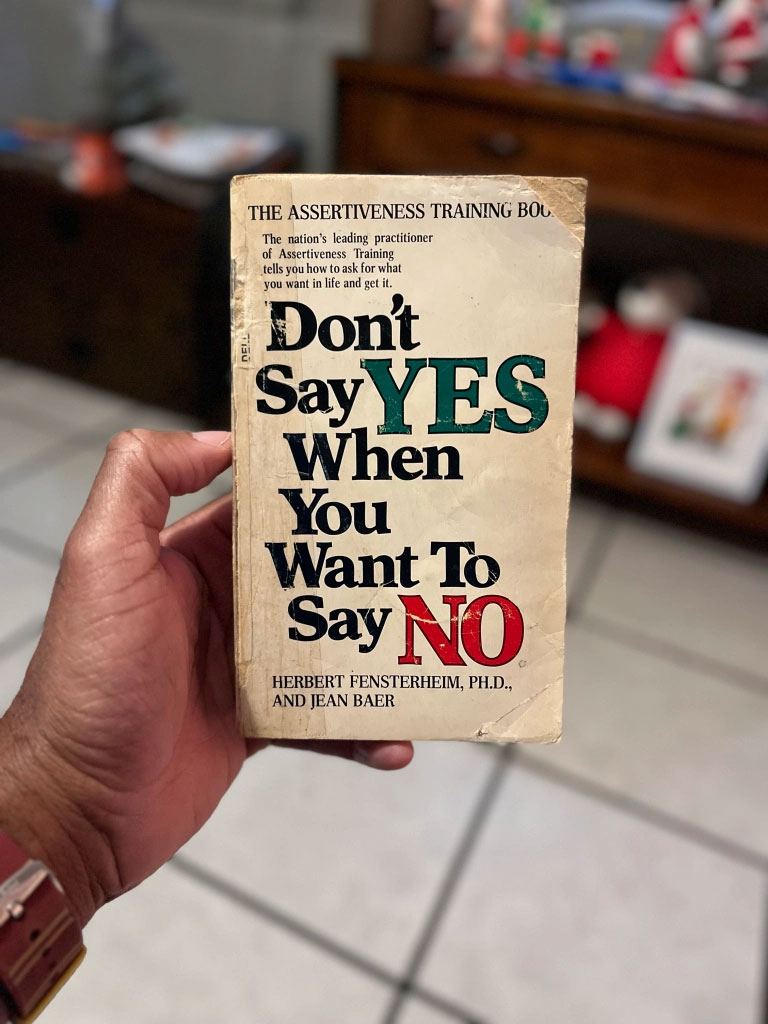
The Power Of “No” — It’s A Complete Sentence!
Last week, I wrote about a new philosophy I’ve adopted for 2023. This “new” year, I’m mixing things up and trying more than a few new things.
My inspiration for the challenge was Shonda Rhimes’ book “Year Of Yes.” She wrote about her former penchant for saying “no” to everything. Like Rhimes, I’ve never had a problem saying “No.”
Well, not for a few decades, anyway.
When I was in grade school, somewhere around fifth grade, I read a paperback that my mother had just finished, entitled “Don’t Say Yes When You Want To Say No.” (I was always ahead of my grade level on reading!) All of these years later, I’ve still got that book. I’ve carried it with me and drawn upon it during multiple jobs, in homes in four states, and during two marriages.



As you can see, this book has been stapled and taped together for the last 37 years. It really moved the needle on my former problem with saying “no.”
As I think about it, it’s just striking me that “Don’t Say Yes When You Want To Say No” is the converse of Rhimes’ bestseller, but it changed my life more than any book has, short of the Bible and “The Four Agreements.”
Today, I know that “no” is one of the most powerful words in the English language. It’s also a complete sentence. No follow-up or additional words or explanation are required after using it. My kids learned that lesson very early in life!
Speaking of kids, and as hard as it is for me to remember him, lil MPC had problems being assertive early in life. I still remember days in grade school when I’d help friends cheat on exams for which I’d studied really hard, because I was afraid to say “no” to them. I also still remember the looks on those friends’ faces when I realized the power of “no,” and decided to move it to the forefront of my vocabulary.
There’s a section of the book where the authors, Dr. Herbert Fensterheim and Jean Baer, reveal a characteristic of the English language. If you’re fluent in it, you’ll be able to note the moment when, as you’re being asked a question, the questioner’s voice lilts just slightly upward at its culmination.
THAT is your cue: the voice being raised at the end of a question is the asker giving you full and total permission to say “yes” or “NO!” And you don’t have to feel guilty about saying no, as they’ve given you permission to do so.
Try it sometime. “No.” It feels really good just to say it, when the time’s right.
And remember what I told you, if guilt starts to creep in: “No” is a complete sentence!
When he was a kid, freelance content creator Michael P Coleman used to talk to strangers and get punished. Today, he gets published. Connect with him here.




